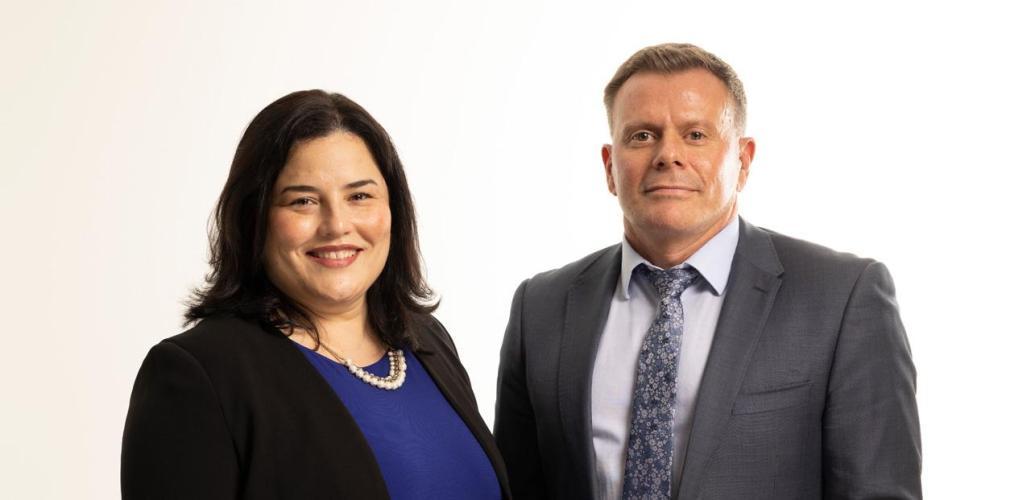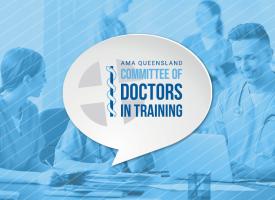President and CEO update - January 2024
The new year has already brought change upon the Queensland community, with recent new vaping laws, COVID variants and State Government cabinet shuffles posing many considerations and public health hurdles.

AMA Queensland is continuing to work with all levels of governments and sides of politics to recognise areas needing vital improvement, striving to ensure change is made with community and health at the forefront.
Natural disaster resources and assistance
As ex Tropical Cyclone Jasper and associated floods swept through Far North Queensland (FNQ), we saw a powerful display of community strength and generosity.
Cairns GP and practice owner Dr Lee Jones took primary care to a new level after returning to find his damaged clinic had no power. Dr Jones and his colleagues resourcefully set up a temporary clinic in the only local place that had power - the boat club.
Many other local practices were left with no choice but to temporarily close. Those who were able to remain open worked under very challenging and unique circumstances.
Our Committee of Doctors in Training Chair, Dr Elise Witter, wrote about a group of nine colleagues stranded near the Barron River, and of the overwhelming generosity of locals to support the SES and those left homeless.
In support of FNQ doctors, we requested urgent State Government support to help practices get back on their feet, offered advice around telehealth requirements and spoke with the Chief Health Officer (CHO) to ensure the government enacted effective measures to prevent and mitigate the risk of disease and infection.
Although the water has dried up, our concerns for community health remain. We must ensure medical practitioners, patients and the community have access to health care, with particular attention on mental health.
Clarity needed on healthcare services
We have called on the Government to implement a public education campaign addressing confusion around the differences in health services.
Doctors have told us that Government attempts to ease the pressures on GPs and emergency departments (EDs) by introducing federally-funded Urgent Care Clinics (UCCs) and Queensland-funded satellite hospitals are already having adverse effects.
Patients are confused, and understandably so. The names, facilities and opening hours of these new health services are misleading and causing patients to turn up only to be turned away or made to wait for hours.
We welcome any investment into healthcare, but if the community doesn’t know what services they can access in what location, it will only further exacerbate the pressures on health staff, fragment care and impact the viability of existing practices.
We will continue to urge our state and federal governments to ensure people know where they should go when they fall ill or in an emergency.
Returning community confidence to our health system
Recent survey results showed us what we already knew; that Queenslanders are losing confidence in the state’s health system at a rapid pace.
The data is concerning, but it is important to recognise communities have not lost faith in our hardworking doctors, nurses, paramedics, and other practitioners, but in the system and the bureaucracy behind them.
Since 2022, the government has taken up several AMA Queensland recommendations including 2,500 new hospital beds and financial incentives for doctors to relocate to Queensland.
These solutions have been a good start, but we must do more to return community confidence and improve our struggling health system.
We will convene a Surgical Services Roundtable early this year to find solutions to the elective surgery crisis, similar to our Ramping Roundtable.
While the Premiers number one focus must be on supporting, recruiting and retaining in the health workforce, we need all levels of government to address the system as a whole and work together on real solutions.
State of bulk billing calls for Medicare reform
The Federal Government claimed its tripling of the bulk billing incentive from 1 November meant 11 million Australians could now be bulk billed, but an online survey of GPs and the Federal Government’s own statistics show this is not the case.
An online health directory released new figures showing bulk billing rates have fallen by 9.4 per cent and out-of-pocket costs have risen in every State and Territory by 2.8 per cent since April 2023.
The Federal Government’s figures show the proportion of patients who were ‘always’ bulk billed declined 14.1 per cent in the year to mid-2023.
While the increased incentive provides some respite for practices that were considering moving away from bulk billing, it hasn’t helped practices resume bulk billing as the Government claimed.
Years of inadequate indexation of Medicare rebates, coupled with the rising cost of rent, equipment, training, wages, and insurance, has seen GPs have to charge out-of-pocket costs for patients or close their doors.
We know GPs are seeing patients for far more complex issues which require longer appointments than the standard 15-minute consultation. The new level E consult item somewhat addresses the issue, but Medicare rebates still don’t adequately support patients who need longer consultations.
Bulk billing incentives can only do so much without addressing the issue at its core – Medicare has been severely neglected for decades now, and we need real reform.
Engineered stone ban
AMA Queensland has commended the State Government for implementing a national ban on engineered stone after Safe Work Australia’s report revealed the dangers of silica dust.
It is ultimately up to governments to regulate and set standards for protective equipment or ban substances that are deemed too risky and dangerous, and we welcome their efforts to do so.
No day at work should involve potential exposure to products causing avoidable and irreversible respiratory conditions.
We will continue to encourage those with a history of exposure to silica dust to get a medical screening and provide support for those diagnosed with silicosis or related lung diseases.
Foundation cheque
AMA Queensland Foundation Chair Dr Dilip Dhupelia was overjoyed to wrap up 2023 by handing over a cheque to the value of $173,780 to Beddown, a charity that supports Queenslanders experiencing homelessness.
Beddown repurposes under utilised empty spaces into safe and secure venues for people experiencing homelessness.
We commend the Foundation Board and secretariat for their tireless work to achieve this donation, as part of the Foundation’s mission to bring together medical colleagues and the business community to deliver vital services outside those catered for by the public health system.
The Foundation cheque will help Beddown open a new dedicated venue in Ipswich, connecting guests with vital outreach medical, healthcare, counselling and hygiene services, something that most Queenslanders take for granted.
Future of vaping
The Federal Government’s new vaping laws came into effect on 1 January 2024, and we remain focussed on preventing the next generation from becoming addicted to nicotine.
Limiting access to nicotine vapes to prescription-only was a necessary step to reduce their damaging and harmful use, particularly by children and teenagers. However, societal change doesn’t occur overnight.
While vapes and their importation are further regulated and controlled than ever before, retailers are still selling non-therapeutic and flavoured vapes, with little sign of regulations being enforced.
There is little to no evidence regarding their safety and effectiveness as a smoking cessation tool, but there is growing evidence they are leading a generation who have never smoked tobacco cigarettes to become addicted to nicotine.
This new law is a start to tackling an already widespread issue, and we urge the Government and practitioners to stay vigilant when it comes to vaping and smoking cessation.
COVID letter to CHO
As new strains of COVID-19 continue to emerge, we have written to the Chief Health Officer (CHO) and Queensland Health expressing member concerns about adequate infection control and safety measures in our hospitals.
We first wrote to the CHO in November 2023 and, in the absence of any reply, followed up on 11 January 2024 reiterating these concerns and seeking clarity on mask requirements.
The CHO recently told media that “Queensland hospitals continue to take precautions to protect staff and patents, requiring masks in high-risk areas”.
However, our members report that masks are only recommended, not required. Our doctors are frustrated and disheartened at seeing patients and colleagues become unnecessarily infected. We have called on the Government to implement and specifically declare adequate COVID safety measures.



